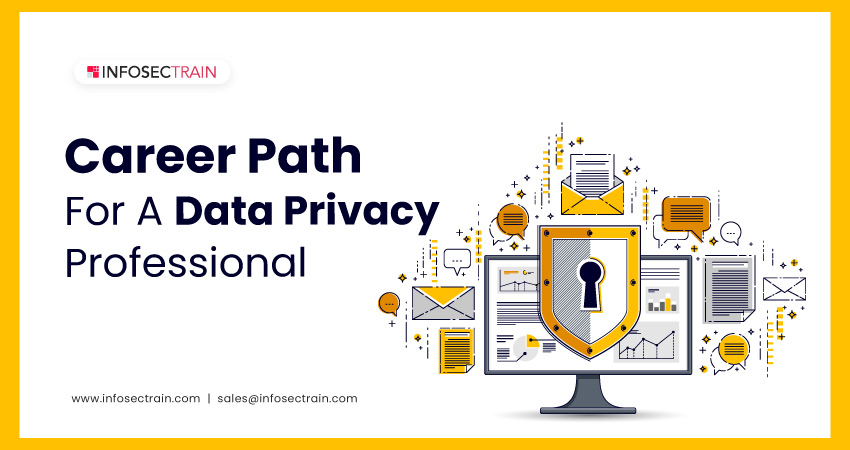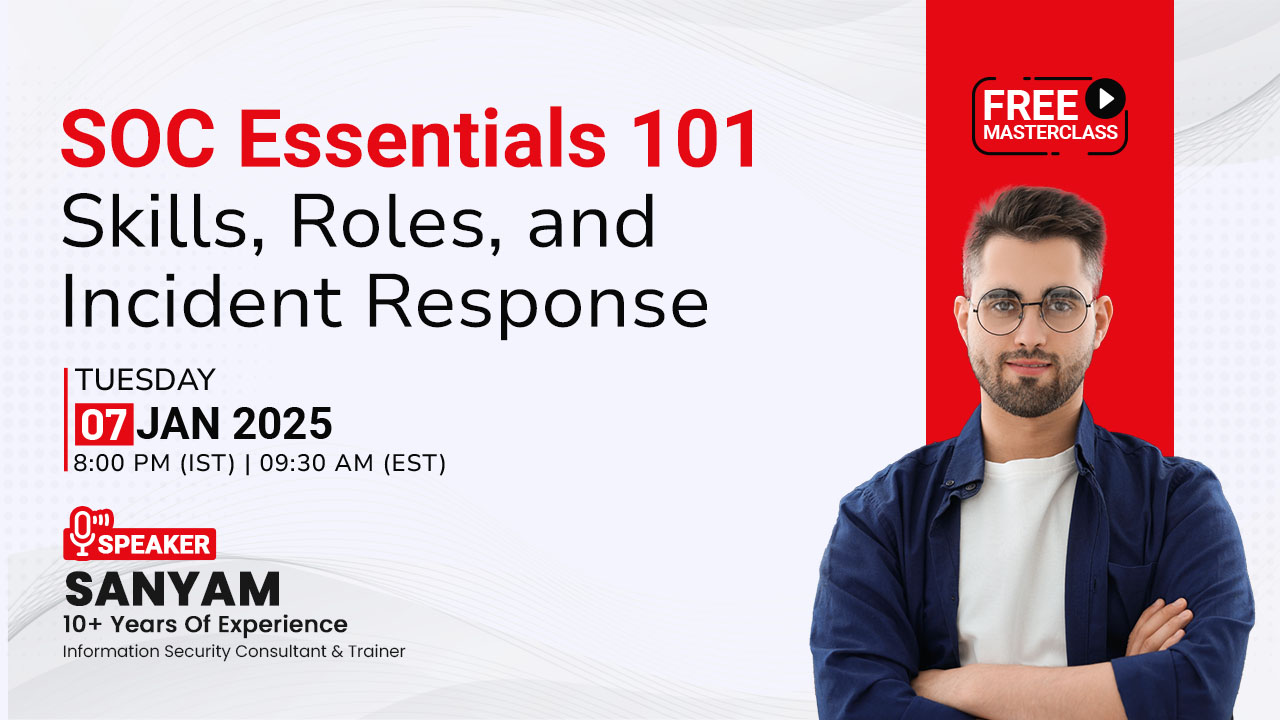Career Path For A Data Privacy Professional
Data privacy is one of the trendiest topics in the technology industry today. With the humongous amount of personal and sensitive information being stored and shared online, it is becoming increasingly important to ensure that this information is protected. Moreover, with the launch of the EU-GDPR in 2018 and other data privacy laws and regulations, businesses across the globe have become compelled to make data privacy and security a priority. A career in data privacy can offer individuals a rewarding and challenging opportunity to make a real difference. This article will provide a closer look at what a career path in data privacy entails, what skills and qualifications you will need to succeed, and what the future of this field might hold. Whether you are just starting or looking to make a switch, this guide will provide valuable insights and advice to help you pursue a successful career in data privacy.

Table of Contents
What are data privacy professionals?
Why become a data privacy professional?
Skills needed to become a data privacy professional
Career opportunities in data privacy
How to become a data privacy professional?
What are data privacy professionals?
First of all, let us understand what data privacy professionals are. Data privacy professionals are experts who specialize in protecting sensitive and personal information from unauthorized access and use. They help organizations implement best practices for data privacy and security, maintain compliance with privacy laws and regulations, and conduct risk assessments to identify potential privacy threats. They also advise on privacy-related issues, develop privacy policies and procedures, and manage data breaches. They ensure that organizations are taking the necessary measures to secure their data and protect the privacy of their customers and employees.
Why become a data privacy professional?
Data privacy is crucial in today’s digital age, where personal information is being collected, stored, and shared online. A data privacy professional ensures the protection of sensitive data and adheres to regulations, such as GDPR, Personal Information Protection and Electronic Documents Act (PIPEDA), Children’s Online Privacy Protection Act (COPPA), Health Insurance Portability and Accounting Act (HIPAA), Consumer Data Protection Act (CDPA), and Digital Services Act (DSA), to maintain privacy and security. With the increasing demand for data protection, a career in this field offers stability, growth, and job security.
The following are the various benefits of becoming a data privacy professional:
- Job security: With increasing concern over data privacy and security, there is a high demand for professionals with expertise in data privacy. This creates job stability and career growth opportunities.
- Impactful work: Data privacy professionals play a crucial role in protecting individuals’ personal information and ensuring that organizations adhere to privacy regulations. This work can be incredibly fulfilling and make a real difference in the world.
- High earning potential: Data privacy is a specialized field, and professionals in this field earn higher salaries than other IT professionals, with the question “How much do data privacy professionals make?” often prompting interest in the lucrative financial rewards this career path can offer.
- Exciting career: The field of data privacy is constantly evolving, and professionals need to stay updated with the latest technologies and regulations. This keeps the work exciting and provides continuous learning and professional growth opportunities.
- Making a difference: Protecting personal information is more critical than ever in today’s world. By becoming a data privacy professional, individuals can help prevent data breaches and ensure that individuals’ information is kept safe and secure.
Skills needed to become a data privacy professional:
- Knowledge of privacy laws and regulations: A good understanding of data privacy laws and regulations such as the General Data Protection Regulation (GDPR), Health Insurance Portability and Accountability Act (HIPAA), and Children’s Online Privacy Protection Act (COPPA) is crucial.
- Technical expertise: Familiarity with data protection technologies such as encryption, firewalls, endpoint protection, storage with built-in data protection, and access controls is essential.
- Communication skills: Being able to effectively communicate privacy policies, procedures, and risks to both technical and non-technical stakeholders is vital.
- Risk assessment and management: The ability to identify and assess privacy risks and develop mitigation strategies is a crucial requirement.
- Project management: Experience in project management and the ability to coordinate cross-functional teams is often necessary.
- Attention to detail: Meticulous attention to detail is essential when dealing with sensitive data and ensuring compliance with privacy regulations.
- Analytical skills: The ability to analyze data, identify patterns and trends, and draw insights is necessary for data privacy professionals.
- Adaptability and flexibility: With privacy laws and regulations constantly evolving, data privacy professionals must be adaptable and flexible in their approach.
- Customer focus: A strong customer focus is essential as data privacy professionals often need to build strong relationships with stakeholders to ensure that privacy risks are managed effectively.
- Passion for learning: Passion for learning and acquiring new skills is essential in any career, including data privacy. In the fast-paced and constantly evolving field of data privacy, it is vital to stay up-to-date with the latest technologies, regulations, and best practices. A passion for learning helps individuals in this field continue to grow and develop their skills, ensuring they can meet the challenges of the evolving landscape and stay ahead of the curve.
Data privacy professional skills encompass a diverse set of competencies that combine legal knowledge, technical acumen, and interpersonal abilities to navigate the complexities of protecting sensitive information in the digital age.
Career opportunities in data privacy:
- Chief Privacy Officer: The Chief Privacy Officer or CPO is a senior executive who manages an organization’s compliance with information privacy rules and regulations.
- Data Privacy Specialist: Data Privacy Specialists are professionals who specialize in protecting personal and sensitive information from unauthorized access and use. They implement security measures and policies to ensure data privacy and comply with laws and regulations.
- Data Privacy Analyst: Data Privacy Analysts are professionals responsible for ensuring the confidentiality, integrity, availability, and security of personal and sensitive data. They analyze, monitor, and implement privacy policies and regulations to protect data from breaches and unauthorized access.
- Data Privacy Manager: Data Privacy Managers are responsible for overseeing and implementing data privacy policies and procedures to ensure the protection and confidentiality of sensitive information.
- Data Privacy Consultant: Data Privacy Consultants assist in the development as well as implementation of policies and processes to safeguard the privacy of their customers’ or employees’ data as well as their companies’ continued adherence to data privacy laws and regulations.
How to become a data privacy professional?
Becoming a data privacy professional requires a combination of education, experience, and certifications. Below are some steps you can follow to achieve this goal:
- Education: Pursue a degree in a related field, such as computer science, law, or information systems, to gain a strong foundation in the technical and legal aspects of data privacy.
- Gain experience: Look for opportunities to gain hands-on experience in data privacy. This could involve working in a related field, volunteering for privacy-related organizations, or participating in privacy-related projects.
- Stay up-to-date: Data privacy is a rapidly evolving field, so it is important to stay current with the latest trends, laws, and best practices. Read privacy-related news, attend privacy conferences and workshops, and consider earning a certification in privacy.
- Certifications: Consider obtaining a certification in privacy, such as the Certified Information Privacy Professional (CIPP), the Certified Privacy Technologist (CPT), or ISO/IEC 27701. These data privacy certifications demonstrate your commitment to privacy and can help you stand out in the job market.
- Networking: Network with other privacy professionals by joining professional organizations, attending privacy events, and participating in online privacy communities. This can help you learn from others in the field, build relationships, and find job opportunities.
The career path you can pursue:
- Start with a bachelor’s degree in a relevant field such as computer science, information technology, cybersecurity, or data management.
- Gain hands-on experience through internships or entry-level jobs in the industry.
- Earn certifications in data privacy, such as the Certified Information Privacy Professional (CIPP) or the Certified Information Privacy Technologist (CIPT).
- Consider a master’s degree in data privacy or a related field.
- Pursue a role as a Data Privacy Analyst or Specialist, working to implement data privacy policies and procedures within organizations.
- Develop your skills and knowledge through professional development opportunities and additional certifications.
- Advance to a Data Privacy Manager or Director role, leading privacy initiatives and advising senior management on privacy and data protection best practices.
- Consider becoming a Data Privacy Consultant, working with multiple organizations to advise on privacy and data protection matters.
- Consider entering into academic or research roles, contributing to the advancement of data privacy best practices, and contributing to the development of privacy-enhancing technologies.
Build your career in data privacy with InfosecTrain:
The field of data privacy is constantly evolving and requires individuals who are well-versed in technology and privacy laws. Becoming a data privacy professional requires continuous learning, and those who choose this career path can expect to be in high demand in the coming years. With the rise of data breaches and the importance of protecting sensitive information, the career path for a data privacy professional offers a challenging and rewarding experience. Whether you choose to work in a large corporation or start your own consulting firm, a career in data privacy provides the opportunity to make a notable impact on the world of technology and privacy. The future of data privacy jobs looks promising, as advancements in technology continue to drive the need for skilled professionals to safeguard personal information and navigate complex regulatory landscapes.
TRAINING CALENDAR of Upcoming Batches For CIPP/E
| Start Date | End Date | Start - End Time | Batch Type | Training Mode | Batch Status | |
|---|---|---|---|---|---|---|
| 04-Jan-2025 | 19-Jan-2025 | 09:00 - 13:00 IST | Weekend | Online | [ Open ] | |
| 04-Jan-2025 | 19-Jan-2025 | 19:00 - 23:00 IST | Weekend | Online | [ Open ] |
InfosecTrain’s various data privacy training courses, like CIPP/E, CIPM, CIPT, and CDPSE, serve as a compass guiding individuals to become seasoned professionals in the dynamic landscape of data privacy. These courses cover various aspects of data privacy and will provide in-depth knowledge of data privacy laws, regulations, and best practices. With an emphasis on hands-on experience, these courses equip individuals with the skills as well as knowledge necessary to be proficient in the field of data privacy.








 1800-843-7890 (India)
1800-843-7890 (India) 
